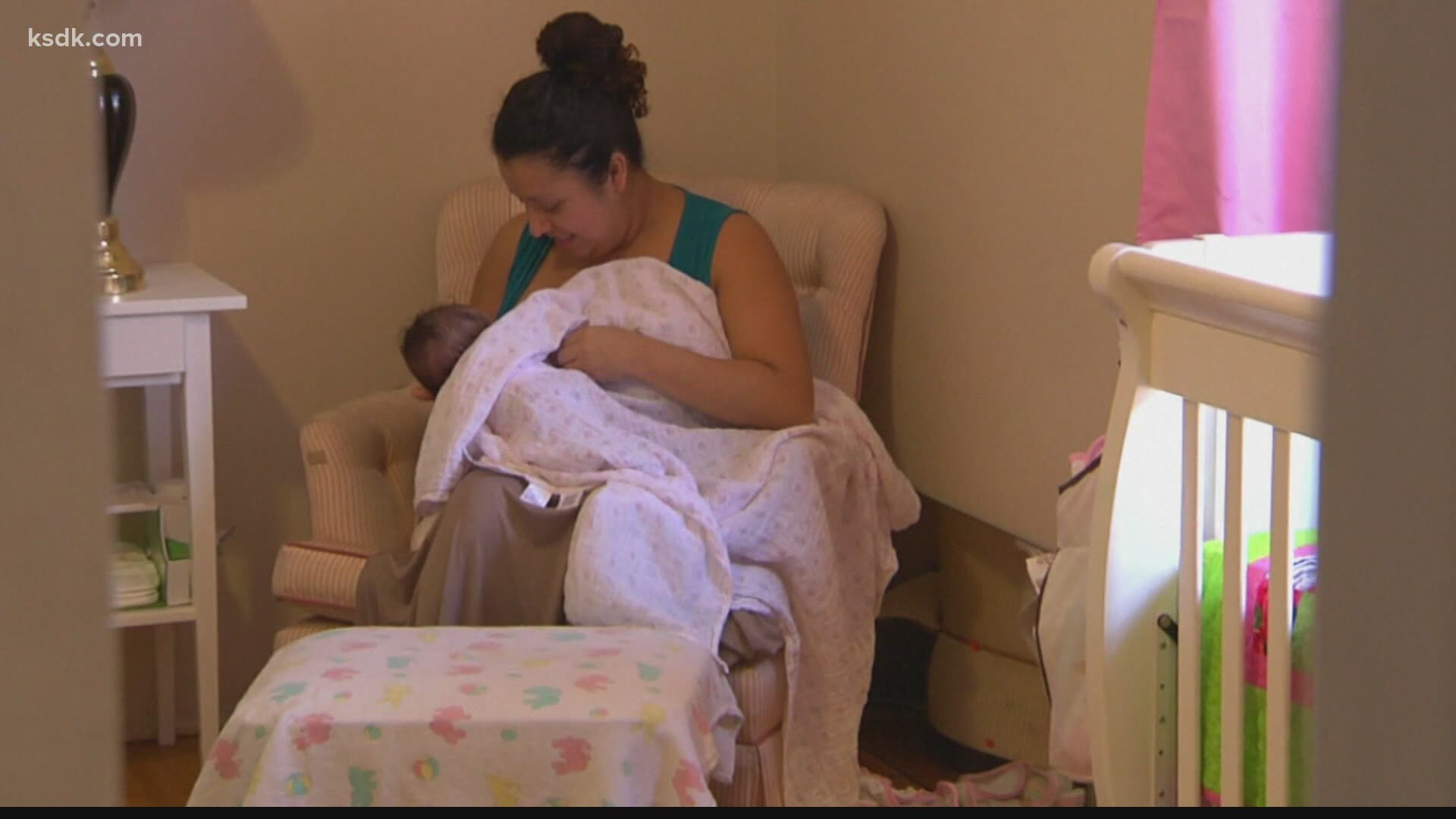ST. LOUIS — The CDC says it is safe for breastfeeding mothers to get a COVID-19 vaccine, and now the shot's available for new moms without leaving the delivery room at BJC hospitals.
“It can be difficult for these for these new newly postpartum moms to actually go out into the community, find doses, get scheduled and have some time, childcare could also be an issue,” said Emily Cooke, clinical pharmacist for women and infants at Barnes Jewish Hospital. “So we wanted to be able to provide something convenient for them: while you're here, before you leave.”
“I was a little skeptical, but I think overall it's a good health decision,” said Felecia Kegler, who spoke with 5 On Your Side from her labor and delivery room at Barnes Jewish Hospital, hours after receiving the first dose of a COVID-19 vaccine.
It’s a decision Dr. Marta Perez, OB-GYN at Barnes Jewish Hospital, helps patients weigh — and she’s had to make for herself.
“I was only a few days postpartum and breastfeeding when I received my first dose as well as my second dose,” said Dr. Perez. “I think sharing that with patients has been really helpful, just to know that I stand behind it and even before we had the millions of people data we just had the trials, I was confident in the safety.”
The CDC also advises that it is safe for pregnant women to get vaccinated against COVID-19 — a virus that is more dangerous for expecting mothers.
“Pregnancy increases the risk of severe disease and even death from compared to other people have the same gender and age and health status,” said Dr. Perez.
The initial clinical trials of the vaccines did not include pregnant women. However, tens of thousands of pregnant healthcare workers received the shot at the end of 2020, even more now in the general public.
“We've been looking at this emerging data of pregnancy and breastfeeding we've seen only good stuff: antibodies passing [to the baby], no increased rates of fever or arm soreness or anything like that,” said Dr. Perez. “So we're only finding benefits, and we have yet to find any downsides basically.”
There's also no evidence the COVID vaccine has any impact on fertility for men or women. The American Society for Reproductive Medicine encourages vaccines for anyone pregnant or planning to have a baby.
For those concerned that it’s too soon to be sure the vaccine has no negative side effects, Cooke and Perez said the science has had plenty of time to provide the evidence they need.
“There have been millions of people at this point vaccinated across this country, and if there was something going wrong, we would know about it by now,” said Cooke.
“In the long history, decades-long history, of us using vaccination to prevent deadly diseases there's actually never been a case of a vaccine causing a long-term issue that was picked up after a few months after the vaccination,” added Dr. Perez.
Ongoing research is required, though, to track the positive impacts of vaccination — including an apparent ability to pass COVID antibodies to a baby in the womb or through breast milk.
“Even if we don't have the data [yet], we know that antibodies to other respiratory viruses pass through the breast milk and can decrease respiratory infants by about a third, which is important,” said Dr. Perez, who anticipates more formal data on the matter in the coming months. “Even if they're not breastfeeding, there's still a huge benefit to the family of having a healthy and safe family member in their home with them.”
Kegler hopes the vaccine will keep her healthy to take care of all of her children, and that she could feed her newborn son some protection, too.
“His body is so sensitive and he's so tiny, and so I would like to have every precaution taken this necessary to continue to keep him safe,” she said.

